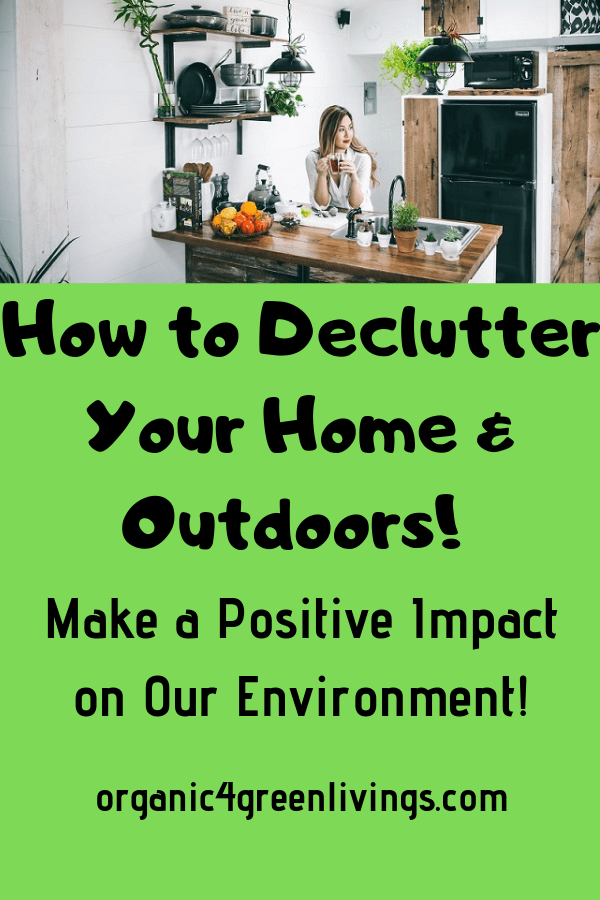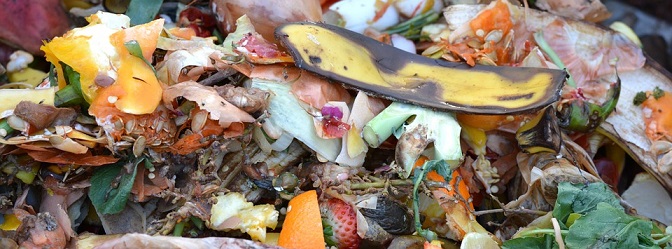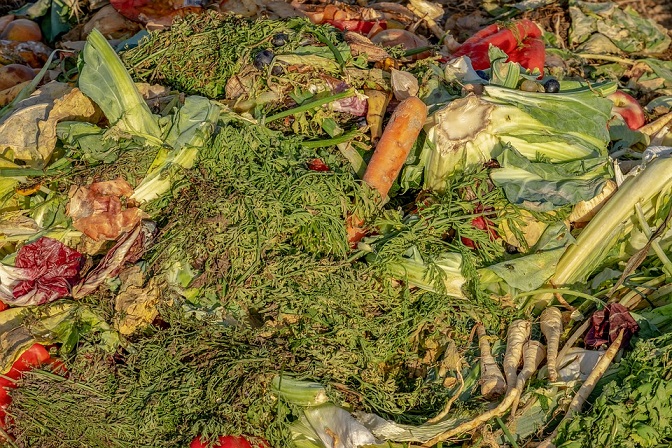How Routine Decluttering can Positively Impact the Environment
The hustle and bustle of your daily life can take a serious toll on how you function at home. The chaos can lead to added stress, which might cause you to temporarily ditch habits and routines that are essential for a healthy home and environment. The result? A cluttered and unorganized mind and living space.
A great way to counter this is to set aside one day a week to declutter and organize the house. With consistency, this is a great way to not only improve your life but help improve the environment, too.
The act of decluttering can help you become more mindful of your wasteful tendencies. With this clarity comes the ability to see the areas of life where you should cut back—whether on your spending or wasteful habits in the home. Often times you’ll find you buy far more than you need, and cutting back may not be as difficult as you originally anticipated.

Here are ways that decluttering can positively impact the environment.
Go Paperless
We all know that overusing or not recycling paper can negatively impact the environment. After all, the supply of paper you use daily comes from killing trees. According to the EPA, you can save 7,000 gallons of water by recycling one ton of paper. The benefits that accompany recycling paper or choosing to go paperless are a win-win for both you and the environment.
Stacks of papers are an eye-sore in homes. The visible clutter can evoke stressful and overwhelming feelings, making it difficult to be mindful. When you’re mentally or physically exhausted, you might choose to throw excess paper (like those piles of junk mail, coupons and old receipts) into the garbage just to avoid looking at them a second longer.

While it’s tempting to take the easy way out, try your best to recycle any excess paper in your home and, in turn, take care of the planet. Again, if you want to take this a step further, look into going almost entirely paperless.
There are lots of great ways to rid your life of paper clutter. One way of doing this is by moving the work that you normally complete on paper into a digital space. In today’s world, technology is an integral part of people’s personal and professional lives, and while in many ways new technology is becoming hazardous to the environment, you can also use it for good. Instead of writing on paper to do your work, or needing to buy a new calendar every year, now we have online calendars and web-based software like Google Docs for writing.
Another way to eliminate paper clutter from your life and maintain eco-friendly habits on-the-go is with smartphone technology. Mobile phones help you to take control over how your choices impact the planet more easily. For example, throughout history, financial institutions relied quite heavily on paper. In the digital age, you can avoid this by moving your money into an online-only bank account and access it right from your phone. Online banking is a more sustainable option for managing your finances. Since mobile banks operate online, they have no brick and mortar locations using excess power to stay operational, and support a paperless lifestyle.

So next time you go through your weekly cleaning spree, try to take the time to sit down and go through your papers. Keep the files that are important to you and transfer them to your computer. You can then recycle them alongside unimportant papers. Now that your information is being kept on a digital file, you won’t need to worry about needing to buy as much paper in the future, helping to reduce your carbon footprint.
Food Waste
It’s not uncommon to find yourself buying more food than you need at the grocery store. However, this can lead to throwing out food and creating more waste than anticipated. Let’s face it, food waste is harming our planet, as over 40% of household food in America goes to waste. However, with a conscious living mindset, everyone can take steps to reduce clutter centered around the food we purchase.

While it may seem counterproductive, cleaning out your refrigerator on a monthly basis can actually be a great way to reduce food waste in the long run. By clearing out old, unused food products and expired goods, you become more conscious about what you consistently consume. Tracking your eating habits can help you avoid buying more food products than needed and reduce the time and money you spend choosing food items at the grocery store.
If you have old vegetables and fruits you’re planning on throwing away, consider moving that old produce to a compost pile. This is a reusable method for foods that can be used for other environmentally friendly perks. By creating a compost pile, you’re taking your expired food that may not be too healthy for you to consume, but that contains nutrients beneficial for the environment. By disposing of old food in the garbage, you’re sending the goods straight to the landfill. Another great way to help reduce food waste is by using new clean tech apps that are working to help prevent food waste all across America.
Outdoor Decluttering
If you maintain a garden or other outdoor living spaces, you know how quickly they can become cluttered with dead leaves and weeds. However, while you want to keep your garden neat and maintained, you don’t want to resort to harmful weed killers and pesticides. While gardens can be a great way to help the environment, the usage of these products is harmful to not only your body but the earth as a whole. Therefore, it’s important to manage garden pests with a natural approach when maintaining a sustainable garden.
Sure, the natural approach to eliminating outdoor clutter is a lot more complicated than simply spraying weed killer. However, getting down in the dirt to pull weeds and rake leaves can also be a fulfilling experience, and can help naturally reduce the use of harmful chemicals.

Also, keep in mind, you don’t need to throw those old leaves and weeds to the curb. Instead, you can use them as part of your compost pile; especially since composting is the most impactful sustainable gardening practice (among the rest) that you can try out! By reusing the waste from your garden to feed your plants, you help the garden maintain a sustainable life cycle. Your plants, the environment, and your body will thank you for the healthy choices you make!
As you can see, there are a lot of amazing benefits to taking the time to declutter and organize your life. Not only can you reduce the mental stress and anxiety that can come from a disorganized home, but you simultaneously help the environment become a healthier place to live. As a reminder, take the time to jot down the items you’re cleaning out, try to recycle as much as possible, and make an effort to be more conscious about your purchases in the future.

Good post Marla. I particularly like the reminder to get down in the dirt to pull weeds and rake leaves. It can be a fulfilling experience, and can help naturally reduce the use of harmful chemicals.Let’s keep our natural environment people and all living creatures friendly!
HI Nancy,
Totally agree. I pull weeds constantly but I also don’t have to worry about what chemicals I am breathing in and harming my health. Thanks for stopping by and commenting. Have a healthy, happy & blessed day.